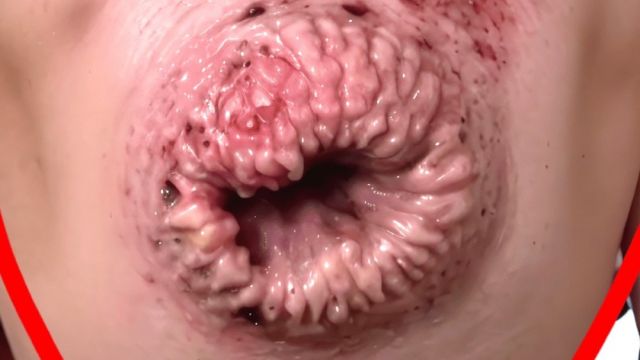Introduction
Our bodies are constantly communicating with us, giving us signals about our overall health. Recognizing these signs early may help detect and address underlying health issues before they escalate into more serious complications. In this article, we will explore 10 visual signs your body might be sending you that indicate poor health.
We will discuss each sign’s potential causes, health implications, and remedies that may help you identify and address them. By the end of this article, you will have a clear understanding of some common visual signs of poor health and the importance of early detection and intervention.

Did you know?
- Consuming unhealthy food and beverages can increase the risk of at least 13 types of cancer, including endometrial, breast, and colorectal cancer. source: CDC
- Unhealthy diet and lack of physical activity contribute to overweight and obesity. source: CDC
Nutritional Deficiencies
Nutritional deficiencies can show up in different visible forms on our bodies. We’ll take a look at four usual signs of vitamin and mineral deficiencies. We’ll cover their causes, possible effects on health, and remedies.
1. Brittle hair and nails
Brittle hair and nails can point to a lack of biotin or other essential nutrients.
- Causes
The main cause of brittle hair and nails is a lack of biotin or vitamin B7. Biotin helps our bodies convert food into energy and plays a key role in maintaining our hair, nails, and skin healthy. Other things that can lead to brittle hair and nails are a poor diet, using antibiotics for a long time, and eating raw egg whites, which have a protein called avidin that binds to biotin, blocking its absorption.
- Potential health implications
Brittle hair and nails due to a lack of biotin might seem like just a beauty problem, but it can also point to a deeper issue tied to nutrition and overall wellness. Not fixing a biotin deficiency could lead to skin disease, enteritis (inflammation of the intestine), and even changes in brain function in severe cases.
- Remedies
To make your hair and nails healthier, think about eating a balanced diet packed with foods that have a lot of biotin like fish, meat, poultry, eggs, dairy, nuts, seeds, spinach, broccoli, cauliflower, sweet potatoes, whole grains, and bananas. Adults with brittle hair or nails might think about taking a biotin supplement of around 30 micrograms per day, but it’s best to talk with a healthcare expert before starting any new supplements.
2. Mouth ulcers and cracks in the corners of the mouth
Mouth ulcers and cracks at the corners of the mouth are another clear sign of a lack of nutrients.
- Causes
These unwanted symptoms may be because of low iron or B vitamins, in particular thiamine (vitamin B1), riboflavin (vitamin B2), and pyridoxine of vitamin B6. Low levels of these nutrients are linked to mouth ulcers that keep coming back and cracks at the corners of the mouth.
- Potential health implications
If not managed, mouth ulcers or cracked corners of the mouth can become painful and may make it hard to eat or talk. They also point to a wider lack of nutrients in the body, which affects overall health and wellness.
- Remedies
Eating a varied and nutrient-rich diet that includes foods full of iron, thiamine, riboflavin, and pyridoxine may help ease these symptoms and support overall health. These foods include whole grains, poultry, meat, fish, eggs, dairy, organ meats, legumes, green vegetables, starchy vegetables, nuts, and seeds. If needed, discuss with a healthcare expert about suitable supplementation for these nutrients.
In my experience, I found that individuals who frequently get ill with urinary infections, may indicate a weakened immune system, which could be due to factors such as stress, poor nutrition, or underlying health conditions. If these infections are frequent its best to visit a doctor promptly.
Abnormal Body Changes
Our overall body shape can give hints about possible health problems. Below we have described three abnormal body changes that we should pay attention to.
1. Sudden weight gain or loss
Quick weight gain or loss without trying can be a sign of a medical problem.
- Causes
Sudden weight gain or loss can occur due to many factors, such as hormone imbalances, thyroid issues, diabetes, Cushing’s syndrome, polycystic ovary syndrome (PCOS), heart failure, or even cancer.
- Potential health implications
While body weight can change naturally, sudden, and large weight changes could point to a more serious medical issue. Finding the cause and getting the right management is important because some of these issues can lead to severe health problems if not managed.
- Remedies
If you are gaining or losing weight suddenly, discuss it with a healthcare expert for a proper diagnosis and management. In some cases, they may suggest medicine or lifestyle changes, like changes in diet and more exercise, to fix the root cause of the weight changes.
2. Swollen feet or ankles
Swelling in your lower legs can signal different health problems.
- Causes
Swollen feet or ankles may happen because of bad blood flow, heart valve problems, problems with the lymph system, inflammation, or even blood clots.
- Potential health implications
Keep in mind that if your feet or ankles stay swollen, it might show a problem with your heart or blood flow that, if not managed, can lead to more serious issues like heart failure.
- Remedies
If your legs or ankles get swollen, and if it gets worse over time or spreads to other parts of the body, get medical advice. A healthcare expert can check your situation, maybe order tests, and suggest appropriate management options to fix the root problem.
3. Yellowish skin or white parts of the eyes
A yellow colour on the skin or the white parts of the eyes which is referred to as the sclera of the eyes could indicate a serious medical problem.
- Causes
This yellow discoloration is known as jaundice, and it happens from a buildup of bilirubin, a yellow-colored substance made during the breakdown of red blood cells. High levels of bilirubin in the blood might be due to liver problems, such as hepatitis, liver disease, or issues with the gallbladder, like gallstones blocking the bile duct.
- Potential health implications
Jaundice is not a disease itself but a symptom of another issue. If not managed, the root problem can become worse and cause more damage to the liver, gallbladder, or other related organs.
- Remedies
If you see yellowing on your skin or the whites of your eyes, discuss with a healthcare expert right away for a proper diagnosis and management plan to fix the root cause of jaundice.
Feeling tired all the time, even after getting enough rest, could be a sign of underlying health issues. Studies have found that persistent fatigue is associated with anaemia, thyroid disorders, sleep apnea, or chronic fatigue syndrome which are all markers of poor health
Urinary and Digestive Issues
Problems in urination or digestion can sometimes show a bigger health issue.
1. Dark pee and light-coloured stools
Changes in the color of your urine and stool might show some health problems.
- Causes
Dark urine and light-colored stool could be a sign of a problem with your gallbladder, like a gallstone blocking the bile duct. A blocked bile duct can disrupt the breakdown of bilirubin during digestion, leading to dark urine and lighter stools.
- Potential health implications
Gallstones, if not taken care of, can lead to the gallbladder, pancreas, or liver becoming inflamed. This could bring more severe pain and raise the risk of infection.
- Remedies
If you notice your urine is dark and your stool is light-colored, discuss it with a healthcare expert to find the cause. They might order tests and, if needed, suggest management options that can include medicine or surgery to address the gallstone issue.
2. Too much gas, bloating, or belly pain
Long-lasting digestive problems like too much gas, bloating, and belly pain should not be ignored.
- Causes
These symptoms might come from various causes, like irritable bowel syndrome (IBS), Crohn’s disease, ulcerative colitis, problems with the gut, food allergies, or even ovarian cancer.
- Potential health implications
While a bit of gas and bloating could be normal body reactions to certain foods, ongoing symptoms should not be ignored. If not managed, the root issue could become worse and lead to more serious health issues.
- Remedies
If you often have too much gas, bloating, or belly pain, talk with a healthcare expert for a full evaluation and suitable management options based on the diagnosis.
Respiratory and Cardiovascular Signs
Signs about your breath and heart can sound the alarm for larger health worries. Here are three signs that you should not ignore.
1. Ongoing cough
A cough that keeps coming back should not be put aside. It could be a sign of an underlying health problem.
- Causes
Chronic coughs can come from varying sources, including lung cancer, pneumonia, chronic obstructive pulmonary disease (COPD), or even tuberculosis.
- Potential health implications
An ongoing cough might show a more serious problem with your breathing that needs fast medical care and management.
- Remedies
If you’re having a cough that does not go away, discuss it with a healthcare expert. They can help find the cause and suggest suitable therapy. This might include medicines, lifestyle changes, or, in some cases, surgery.
2. Shortness of breath or chest pain
Feeling short of breath or having chest pain, especially when active or at rest, can be a big warning sign for heart health problems.
- Causes
Shortness of breath or chest pain might be due to different heart-related issues. This could be angina, a heart attack, heart rhythm troubles, heart valve disease, or heart failure.
- Potential health implications
Ignoring these symptoms could risk your life, as they might be warning signs of a severe heart event needing immediate medical attention.
- Remedies
If you feel short of breath or have chest pain, seek medical care right away. This could mean going to the emergency room or calling an ambulance. Acting fast may save your life and help reduce damage to the heart.
3. Sharp side pain or numbing feeling in arms and legs
Feeling sharp, unknown pain on your side or a numbing feeling in your arms and legs can point to several possible health issues.
- Causes
Sharp side pain might be due to issues like kidney stones, appendicitis, or a muscle pull. A numbing feeling in the arms or legs may show not enough blood flow, nerve pinching, or problems that affect the nerves, such as diabetes or multiple sclerosis.
- Potential health implications
Not addressing these symptoms could lead to problems and perhaps irreversible damage to the affected organs, nerves, or tissues.
- Remedies
If you feel a sharp pain in your side or a numbing feeling in your arms and legs, discuss it with a healthcare expert. They can help find the real cause and come up with a suitable management plan. This may include medicines, physical therapy, or surgery if needed.
Vision and Hearing Issues
Changes in sight or hearing should be taken seriously. They might show underlying health worries. Below we have discussed two examples that you should not ignore.
1. Bad night vision
Struggling to see clearly in low light or the dark could be a sign of a worrying health problem.
- Causes
Bad night vision might be due to a lack of vitamin A. This vitamin is needed to make rhodopsin, a pigment in the retina of the eye that helps you see in dim light. If not managed, poor night vision can become xerophthalmia, a condition that can harm the cornea and potentially lead to blindness.
- Potential health implications
Not seeing well at night can hinder your ability to see in low-light situations and may also show an undiagnosed lack of vitamin A. If not managed, it can result in permanent vision loss.
- Remedies
If you have poor night vision, discuss it with a healthcare expert. They can figure out if your symptoms are linked to a lack of vitamin A and suggest appropriate changes in diet or supplementation if needed. Foods rich in vitamin A include organ meats, dairy, eggs, fish, dark green leafy vegetables, yellow-orange colored vegetables, and fruits.
2. Difficulty seeing on one side
Difficulty seeing on one side needs medical attention.
- Causes
Changes in vision affecting one side might be due to different factors. This includes strokes, damage to the optic nerve, brain tumors, or other conditions affecting the nervous system.
- Potential health implications
Ignoring this type of change in your vision could have serious results. It may point to an important issue with your brain or nervous system.
- Remedies
If you suddenly notice it’s tough to see to one side, get medical help right away. Proper checkups and fast management of the root problem can help avoid potentially life-altering health problems.
Skin and Hair Problems
Long-lasting skin and hair problems might give hints about possible underlying health issues. Below we have described two examples.
1. Ongoing acne or skin breakouts
Chronic acne or skin breakouts may be more than just a skin issue.
- Causes
Ongoing acne or skin breakouts can come from different factors. This can include hormone imbalances, making too much oil, blocked hair follicles, and bacteria. In some cases, acne may also show an underlying issue linked to digestion or immunity.
- Potential health implications
Untreated acne can lead to scars and can significantly impact self-confidence and overall quality of life. Furthermore, ongoing skin breakouts might show a larger underlying health issue that needs medical attention.
- Remedies
Discuss with a healthcare expert if you have ongoing acne. They can help find the root cause and provide suitable management options, such as skin creams, oral medicines, or changes to your skincare routine. In some cases, addressing root health issues or making diet and lifestyle changes may help make your skin healthier.
2. Red or white bumps on the skin
Small red or white bumps on your skin can signal health problems that need attention.
Causes
Red or white bumps on the skin may be linked to a condition called keratosis pilaris. This occurs when there is an excess of keratin in the hair follicles. While the exact cause of this condition is not fully understood, it may appear in individuals with a deficiency in vitamins A and C.
Potential Health Implications
Keratosis pilaris can raise cosmetic concerns and may cause itching or discomfort. Addressing any potential vitamin deficiencies may help alleviate symptoms and improve overall skin health.
Remedies
If you notice red or white bumps on your skin, consult a healthcare expert. They can determine if a vitamin deficiency might be contributing to your condition. Increasing your intake of foods rich in vitamins A and C, such as organ meats, fish, fruits, and vegetables, may help improve these bumps.
Conclusion
Understanding the visual signals our bodies provide can help us identify and address underlying health issues. The 10 visual signs discussed in this article, such as those related to nutrient deficiencies, abnormal body changes, issues with urine and stools, and symptoms affecting breathing, heart, vision, and hearing, may indicate a potential serious condition.
Remember, early detection and intervention are crucial for effectively managing many health problems. If you notice any of these visual signs, don’t hesitate to consult a healthcare professional. By staying vigilant and acting promptly, you can better ensure a healthy and fulfilling life.
Credit: pharmeasy.in


